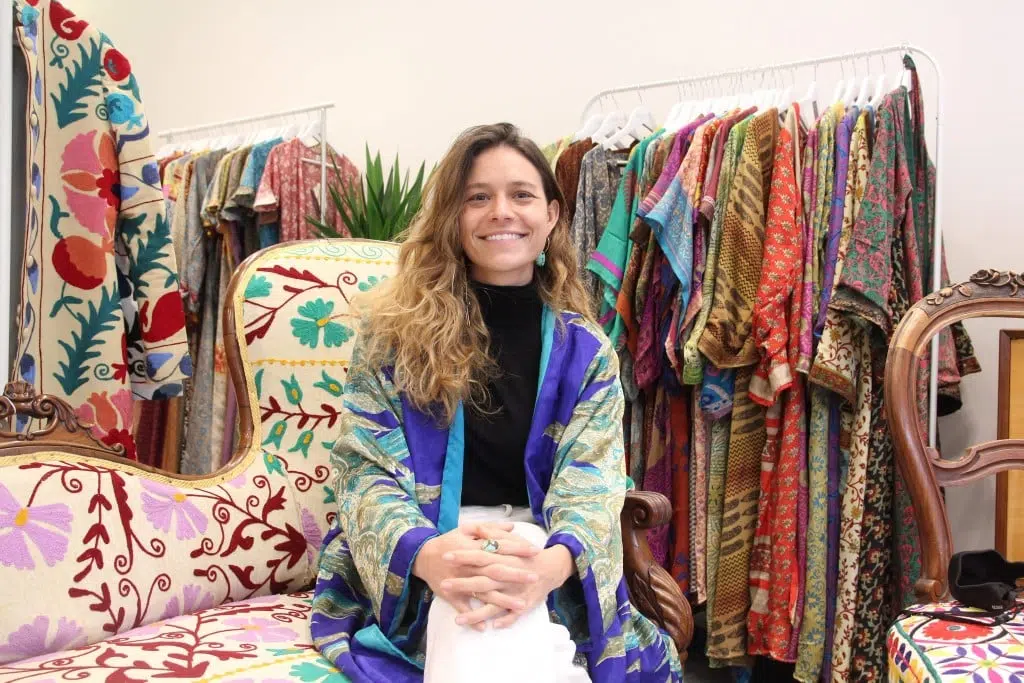In a large, bright and colourful shop on rue Aldringen, Debbie Kirsch has been welcoming loyal customers for a year now. The upcycled saris, which are sewn into dresses, trousers or blouses, are original, with an individual pattern and colourful. We spent some time with Debbie to know more about this unique shop in Luxembourg!
After a master’s degree in Sustainable Business and Innovation from Utrecht, 28-year-old Debbie travelled to Bhikamkor in India for a 4-month internship. She originally started as intern in an organic cotton production company, but then switched to work for the Saheli Women organisation.
The Saheli Women is an organisation that makes clothes, among other things. The group was primarily founded to help women who have been cast out of society to find their way back into life. In Bhikamkor, they still need the permission of their husbands to leave the house and widowed women find it particularly difficult to be recognised. Through Saheli women become more confident, self-reliant and independent.
A common misconception is that Debbie founded the organisation herself: „It existed before me and is active on several levels, not just in dress making. Devï is the biggest brand they produce for, but I am not the only one they work with. They mainly make capsule wardrobes for the other brands.“ In general, Debbie puts a lot of emphasis on cooperation and trusts the women’s opinion. She doesn’t take any decision alone and gives them a lot of freedom in designing.


Every year in October (it’s too hot in summer), the entrepreneur travels to India to plan the next collection together, and she says it’s always particularly exciting to see everyone again. The workplace is hardly comparable to many other factories. „The children come here after school and play until it is time to go home. Every now and then, goats and cows stroll through the studio. There is loud talking, dancing and singing without anyone having to hold back. I strongly believe that when children see their mothers working, it has a positive impact on women’ rights and it can truly make a difference in their village.“
One might say that the clothes still travel a long way from India to Luxembourg and yet are sold as sustainable. But, compared to big fast-fashion brands, Devï is definitely much more environmentally friendly and the cultural impact the brand has on women is incomparable. „Of course, it would also be possible to produce the clothes in Europe, but I cherish my relationship with the Saheli women, so personal and honest. It is also noticeable in the final product. Just the fact that each garment comes with a photo and description of the seamstress is unique.“
Debbie also advises everyone not to buy a garment that the customer is not 100% convinced of, because it should be worn and not gather dust in the wardrobe.


Today, Debbie Kirsch is very happy with the demand and with working with the women in India, and there is even no need to increase production in order to avoid the women having to work like in any traditional factory.
Visit this colorful shop in the Luxembourg capital (or also in Amsterdam) and experience fashion differently!
For more information: Devi-clothing.
Learn more about the Saheli women here.
Pictures: Devï

